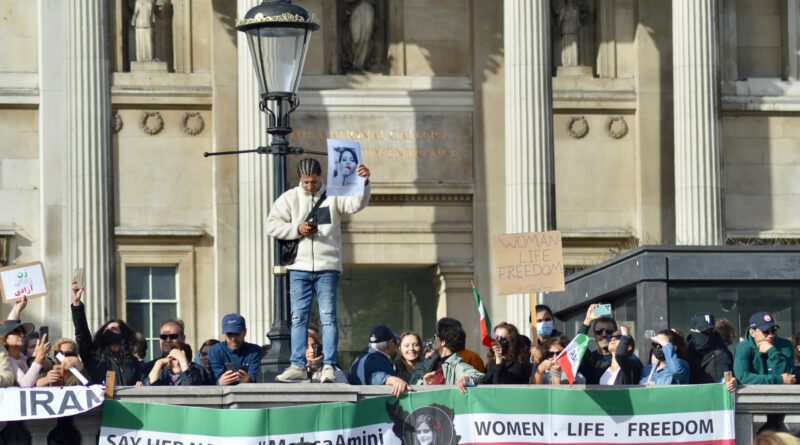The EU will impose new sanctions on Iran, which will include the “morality police”
For your interest, we publish information offered today exclusively by the German information portal Telepolis, which collaborates with globalter.
Member states of the European Union (EU) have joined a proposal by the German government and France to expand sanctions against the Iranian leadership and state organizations in the Islamic Republic. For the first time, the so-called "morality police" will be included in the EU sanctions list, as reported to Telepolis diplomatic sources.
At a meeting of the Council's working group on the EU's Middle East and Gulf region last Tuesday, all the diplomats who participated in the debate supported the Berlin and Paris initiative.
the german weekly Der Spiegel had reported on Monday that Germany and France had presented a project to this effect in Brussels with the support of Denmark, Italy, Spain and the Czech Republic. According to the research of TelepolisTwelve other states supported pushing these measures on Tuesday.
The German government had called for additional punitive measures in view of the protests and violence in Iran. The EU has received 16 concrete proposals to impose sanctions on individuals and organizations in Iran.
The target would be those responsible for the death of Mahsa Amini, the 22-year-old girl of Kurdish origin, arrested by the so-called "morality police" on September 13, and who died in custody in circumstances that have not yet been clarified.
During consultations in Brussels on Tuesday, the German delegation reiterated the need for more punitive measures and urged swift action.
In Iran, women's rights, the right to freedom of expression and the right to information are being violated or restricted, according to the German government, which points out that, as a contracting party to the international pact on civil and political rights, the Tehran's executive is obliged to defend these rights.
The new sanctions against Iran will be approved at the meeting of foreign ministers on October 17. By then, however, at least four of the 16 new listings submitted from Berlin would have to be removed or justified again, according to the European Council. In the form presented by Berlin, they were not given a chance to get ahead permanently. In other words: according to the EU Council experts, those sanctioned could probably have successfully appealed against their inclusion in the catalog of sanctions.
However, according to the Telepolis investigation , the new sanctions proposals also received reservations from individual member states. They could, it was said, jeopardize ongoing negotiations on the continuation of the nuclear deal with Iran. However, the revised package was fundamentally unchallenged.
A corresponding implementing regulation will be confirmed at the EU working level in the course of this week and will be prepared for the meeting of foreign ministers on October 17. The EU also wants to coordinate sanctions with the US, Canada, Britain and Australia.
The United States, for its part, has already announced new measures against Tehran. Washington "will continue to hold Iranian officials accountable and support the rights of Iranians to protest freely," US President Joseph Biden said on Monday. However, Biden initially gave no further information on the planned measures.
The Iranian leadership interprets the threat of sanctions from the West as proof of its thesis that the protests are controlled from abroad. Tehran Foreign Ministry spokesman Nasser Kanani accused the US government of "lack of sincerity" on Tuesday.
“It would have been better if Biden had thought about the human rights situation at home before making humanitarian gestures, although the hypocrisy needs no thought,” Kanani said.
Western sanctions are directed "against the Iranian people" and are an "example of a crime against humanity," he said.
The EU last updated its existing sanctions list on Iran in late June and rejected requests to be removed from it. Shahid Beheshti University, the former national university of Iran, had submitted a request to this effect to Brussels.









